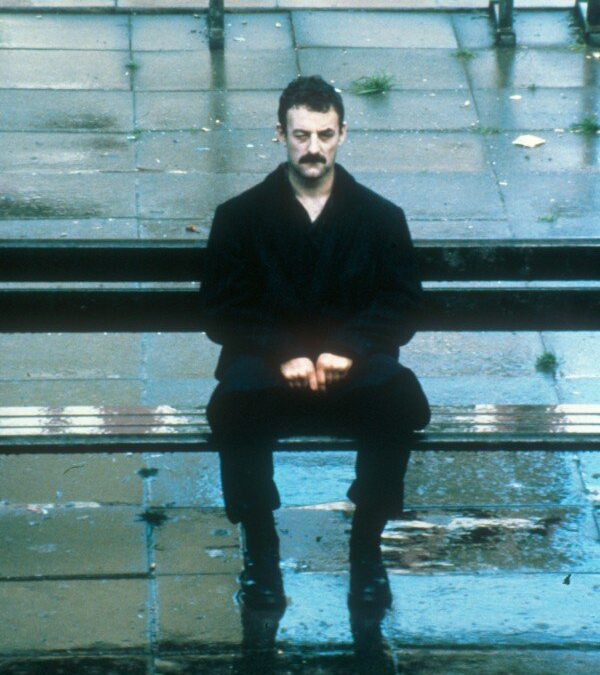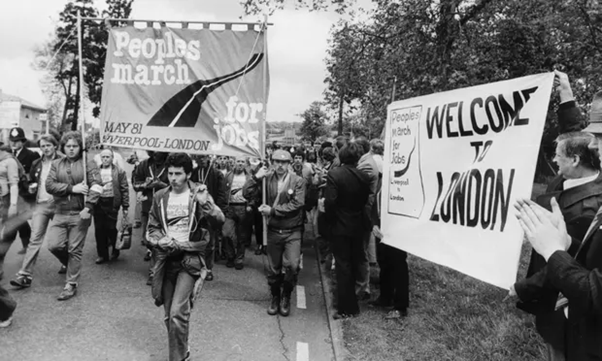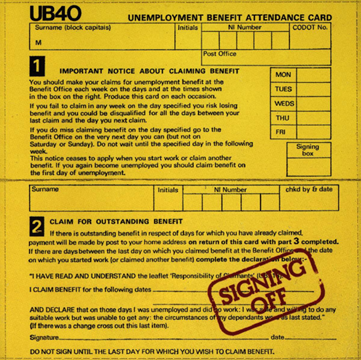The Boys from the Blackstuff: a journey into a career in Careers!

I grew up in the late fifties, and early sixties when life was plain and relatively simple in the north. We didn’t have much but we were clean and well-fed on a fairly bland diet. My Dad was a skilled worker and my Mum was a part-time bookkeeper. I didn’t know anything about jobs and ‘the dole’ until I was in my very early twenties. While my family weren’t personally affected, I could see families around me struggling and experiencing poverty. In Thatcher’s Britain and in particular, in a northern city, unemployment was something to be feared. When Alan Bleasdale’s Boys From the Blackstuff hit TV in 1982, this gritty, hard-hitting drama changed my career path forever.
The drama explores themes of unemployment, poverty, and social inequality, and offers a powerful commentary on the state of Britain in the early 1980s. The characters are complex and multi-dimensional, with each one offering a unique perspective on the challenges they face. The writing is gritty and realistic, capturing the harsh realities of life on the margins of society. The characters are proud, hardworking men who are forced to navigate a society that has abandoned them. The series offers a powerful critique of the Thatcher government’s policies, which were seen as contributing to the rise in unemployment and social inequality during the 1980s.
I watched every episode, which was set into stories of each character. Every character resonated. I knew someone just like…Chrissy…Yosser..(fill in the gaps). Several things struck me powerfully. All of the men wanted to work. The dole office (Department of Employment) were there only to process claims and stamp the UB40. People ‘signing on’ were treated like third-class citizens and the dole office would pass any info on to the fraud team.
Each episode, often hilariously funny, gave us an insight into the emotional torment and desperation the men and their families faced. We watched Chrissy, full of self-loathing and having lost any dignity he might have left, resort to killing the family goose to feed the kids. Who wouldn’t be impacted by Yosser’s journey into his complete mental breakdown? A man overwhelmed by the responsibility of his three children, the loss of his wife, his livelihood and eventually his mind.
Behind every story were people. Suffering people. People in poverty. People who just needed some help. With 3,000,000 people unemployed due to the collapse, relocation or closure of very large industries, the economic situation was one of shared hopelessness.

The answer was of course, that they just needed jobs! But I know that they needed more. They needed the opportunity to voice their fears in a safe, non-judgmental space. They needed to explore their strengths and aspirations. They needed to build up their networks. They might have needed re-training. They definitely needed labour market information, and how it could be used. They needed support for their mental health, food banks, and debt support – things we have now, providing you know how to access them.
I vowed that these would be the people I would take career advice, guidance and counselling to in the future. Except, there wasn’t any of that fancy stuff back then. There was very little for young people and absolutely none for adults! Anyway, the poorer people had jobs, not careers. I would have been laughed out of town if I’d raised the concept of careers being a life-long process! It still amazes me to know that Super’s life-span model (Super, 1957) was written the year I was born! Even more amazing was that Super’s theory had been preceded by the likes of Frank Parsons (1908), Carl Rogers (1942) Meyers and Briggs (1944) Ginzberg (1951) and so on. All the career knowledge was there, but it was in the academic world, not in the real world of unemployment.
This was my learning space; my learning ground. I cut my career teeth on blokes (mainly blokes) who were the nineties and noughties versions of Dixie, George, Loggo, Chrissy and Yosser. Regardless of my acquired academic qualifications, my greatest and most important learning came from the earthy, working-class men and women. Every person is unique. Every person has a career/life story to tell. Careers are whole life and whole person experiences. We Career Development Practitioners do far #MoreThanJustTalkingAboutJobs.


